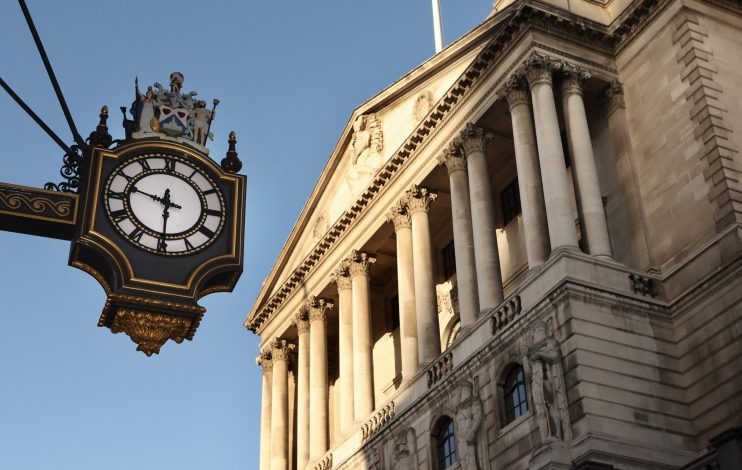Goldman Sachs and UBS expect Bank of England rate cut

Investment banking giants Goldman Sachs and UBS are both predicting that the Bank of England will cut interest rates in response to the coronavirus outbreak.
Goldman analysts expect the BoE will slash rates by 50 basis points (0.5 per cent) at its meeting next month, saying that the epidemic is likely to push the UK economy to the brink of recession.
UBS analysts are expecting a cut of 25 basis points following the meeting on 25 March.
Markets are now widely expecting the BoE to trim rates following the US Federal Reserve’s shock decision to slash rates by 50 basis points on Tuesday, in the first emergency rate cut since the 2008 financial crisis.
The central banks of Australia, Malaysia and Canada have all cut interest rates following the Fed’s announcement, and the BoE and European Central Bank are expected to follow suit.
Markets now consider the likelihood of a 25 basis point from the BoE to be 84 per cent, compared to 37 per cent one week ago.
“The virus outbreak is expected to push the UK economy to the edge of recession, the hurdle for action is low and the [rate-setting] Monetary Policy Committee (MPC) has sufficient policy space to join other major central banks in easing policy,” wrote Goldman analysts.
“We therefore expect a 50bp cut, although a smaller move is possible.”
They added that while the Fed’s emergency cut had raised the likelihood of the BoE taking action ahead of the scheduled meeting, they consider this a less likely outcome.
This is in part due to the governor handover occurring just before the meeting: Andrew Bailey is due to take over from Mark Carney on 16 March.
Bailey said yesterday that the Bank should wait for more clarity about the economic impact of the coronavirus outbreak before cutting rates.
“Given the G7 statement and Governor Mark Carney’s statement to the Treasury Select Committee on Tuesday, saying that ‘the Bank will take all necessary steps to support the UK economy and financial system’, we think the MPC can hardly afford to wait until May,” said UBS’s Anna Titareva.
Titareva added that liquidity issues stemming from the outbreak were businesses’ most pressing concern.
“Liquidity shortages, coupled with high levels of uncertainty about the spreading of the virus, could then lead to staff layoffs and bankruptcies, which would imply that a temporary, albeit significant, supply shock would turn into a longer-lasting demand shock,” she added.
Titareva said that while a 25 basis point cut was likely to have a positive impact on sentiment, UBS doubts it would “significantly benefit cash-strapped businesses”.